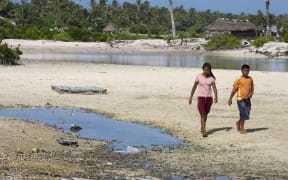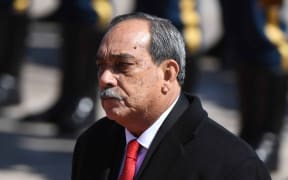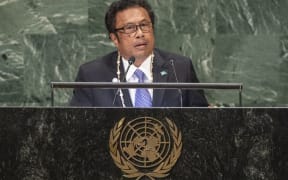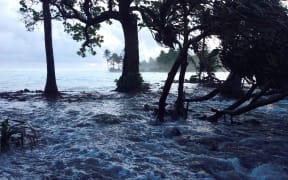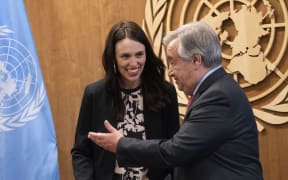Climate change experts and Pacific Islands leaders say indigenous views must be included when it comes to creating regional policies on the issue.
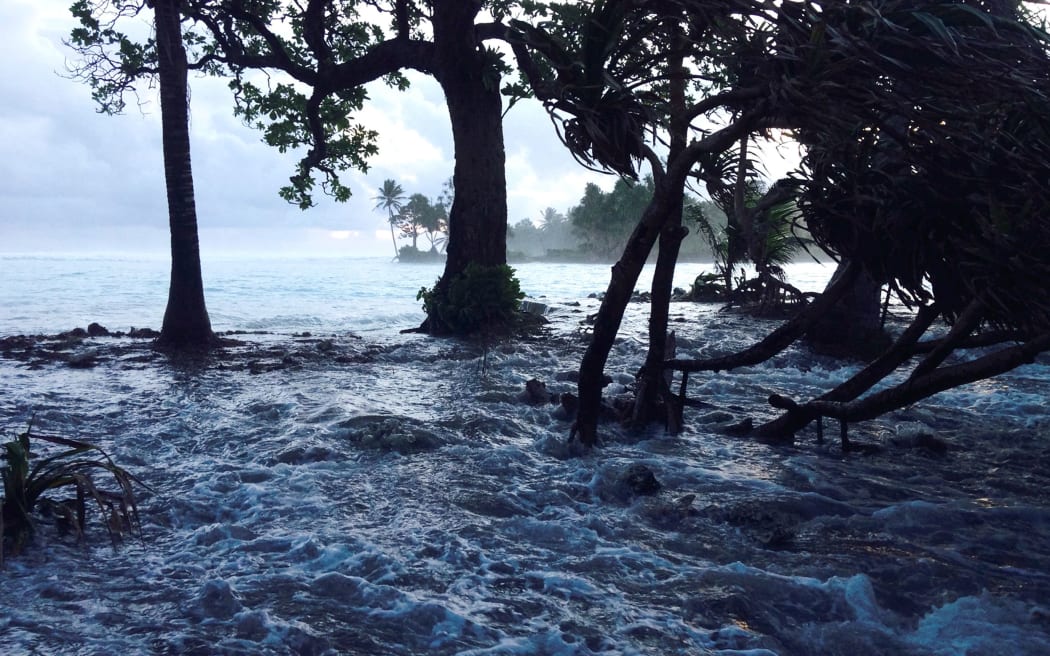
Flooding caused by huge spring tides which Marshall Islands officials have blamed on climate change. Photo: AFP
The importance of western and indigenous perspectives uniting when it comes to tackling climate change in the region was highlighted at a recent conference in Auckland.
For all the lengthiness of its title, the "Climate Change and Conflict in the Pacific: Prevention, Management and the Enhancement of Community Resilience" workshop had a simple message: don't forget about the Pacific.
Despite being on the frontline of climate change impacts, Pacific Islanders' own views on the issue are often absent from the current policy-making process.
Those claims are echoed by people like Reverend Dr Upolu Vaai from the Theological College in Fiji, who experiences the impact of climate change effects on the ground every day.
"The narrative, the climate change narrative has been dominated by either the scientific world view or perspective or the economic perspective where the indigenous perspective and indigenous world views are often excluded."
Building on the traditional wisdom and Pacific people's understanding of their own environment is a challenge that Professor Kevin Clements, the Director of the Toda Peace Institute, said couldn't be ignored.
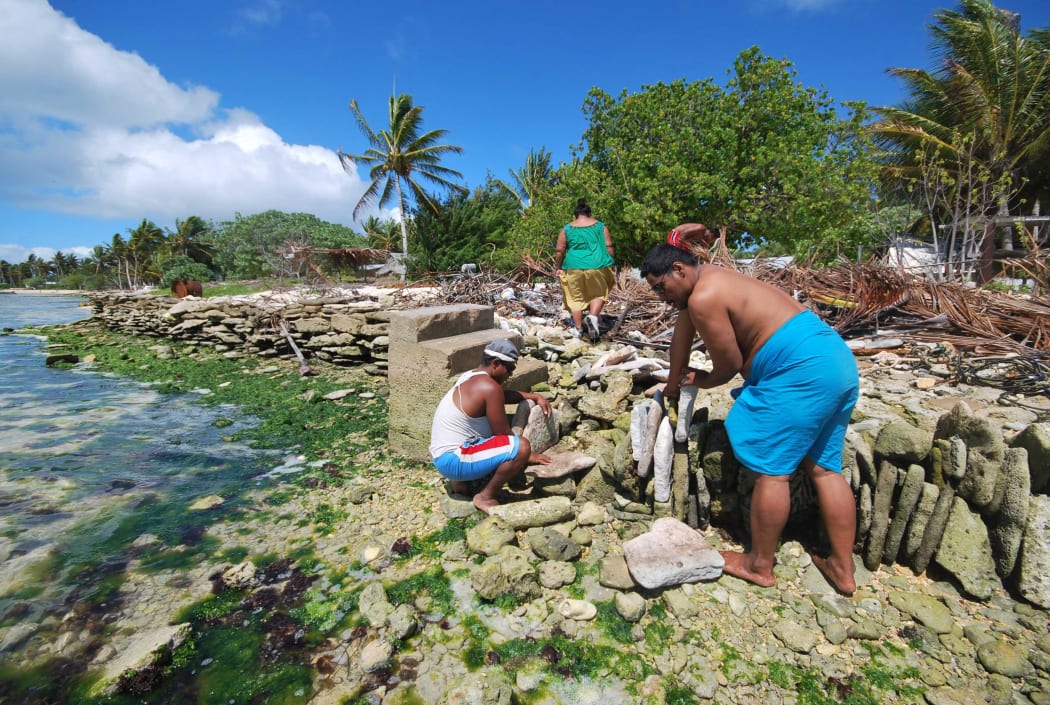
People of Kiritimati coral atoll building a stone seawall to struggle against sea level rise cause by global warming. Photo: AFP
"We've got to look at, how do we learn from indigenous stories and incorporate those narratives into western policy prescriptions?"
He also added that leaders around the world weren't paying enough attention to the climate change effects in the South Pacific.
"They are focussing a lot of attention on Northern hemisphere, on Africa and on Asia," said Mr Clements.
"And so Oceania, to some extent, is a region which is bearing the brunt of climate change but which is somewhat marginal to these global analyses."
Both he and others who attended the conference agreed that there was a gap in the way that people on the ground are experiencing the effects of climate change and the way that political leaders around the world are responding to it.
As governments deliberate over their commitments towards tackling the global problem, in Tuvalu, the devastating effects of our changing climate are already clear.
"The impacts are becoming very visible. Islands are disappearing, coastals are being eroded, corals are beingspoke bleached. So the sources of our livelihood are being challenged. And life has become very difficult."
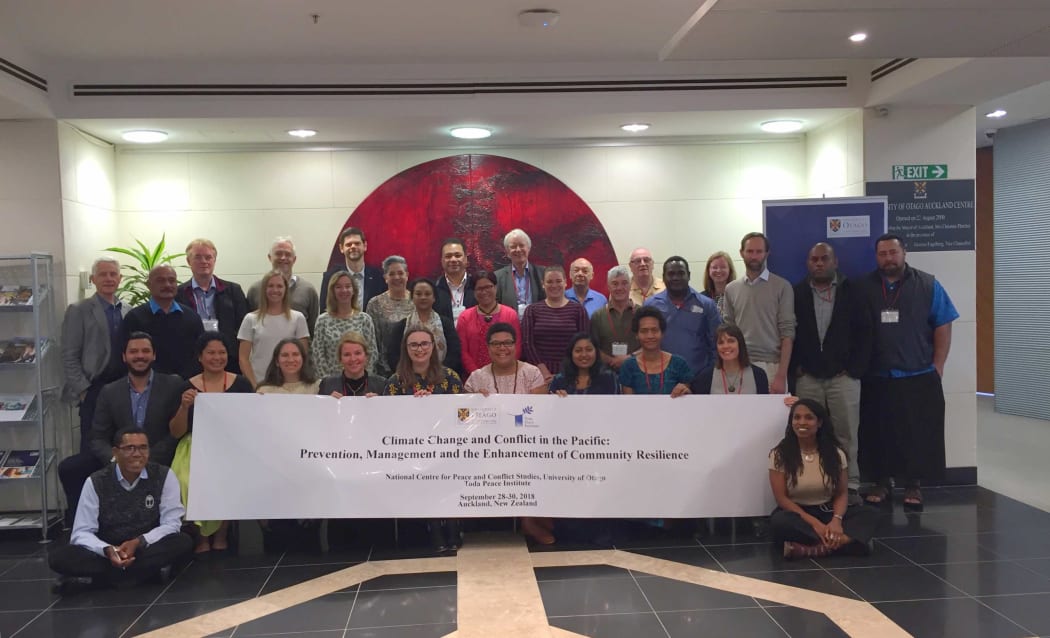
Participants at the Climate Change and Conflict in the Pacific: Prevention, Management and the Enhancement of Community Resilience workshop in Auckland. Photo: Supplied
Tafue Lusama - a local church minister who's focussed his PHD theology studies on climate change explained the economic crisis that has hit his homeland, because of rising sea levels.
"That has forced the people into a marketplace lifestyle which is very expensive because very minimal percentage of the population earn regular salaries to cater to that kind of lifestyle," he said.
"So dependency has become the norm of life in Tuvalu."
But even though locals are being threatened with emigration, Mr Lusama said it wasn't an option.
"Migration, whether it is migration with dignity or migration by itself is not looked at as an option now. We'd rather fight until the end, than throwing the white towel in and say 'We surrender'."
But most significantly, he added, was that the loss of their islands would mean the death of their culture.
"When you relocate a whole country, cross border into another country, their distinctiveness and their identity will be lost. You know, they will become second, third or even fourth class citizens and assimilate into a totally different culture which is not theirs," he said.
"And that's a reality. Tuvalu as a nation, as a people, will disappear."
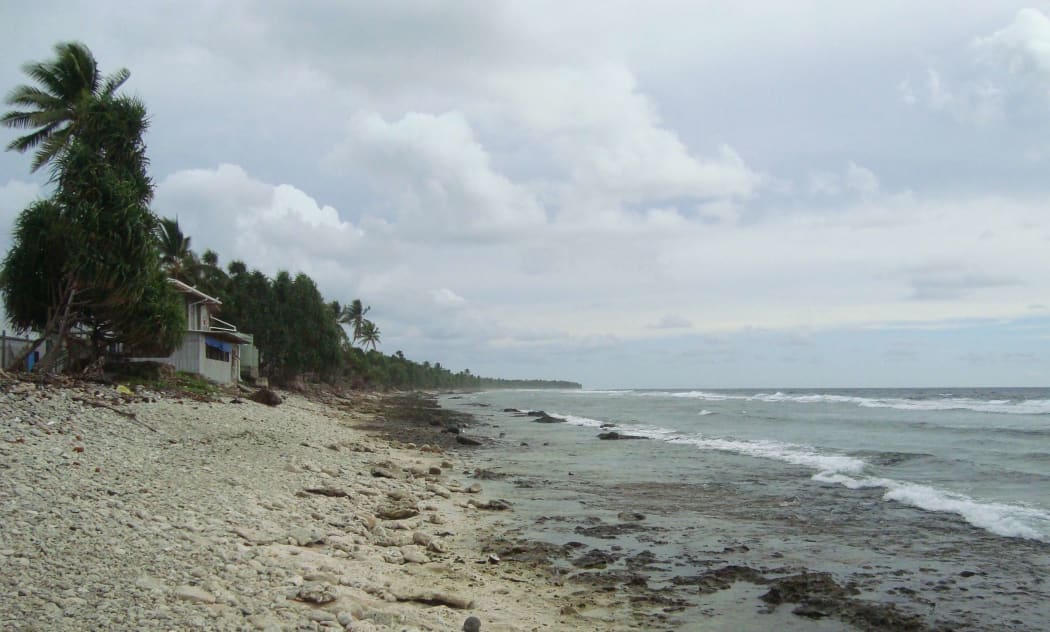
The coastline of Funafuti, Tuvalu's main island. Photo: RNZ / Johnny Blades
While rising sea levels makes climate change visible in countries around the Pacific, Maxine Burkett from the University of Hawai'i explained that other effects were happening all around the world.
An expert in the law and policy of climate change, she didn't think the general public had really grasped the reality of climate change.
"Climate change is a change that is also accelerating," said Ms Burkett.
"The heat indexes that we're seeing all over the globe - and those don't happen in isolation - that happens on top of a storm, which happens on top of the lack of fresh water or drought experiences that produce mudslides so it's a cascade of effects."
Both Dr Vaai and Mr Lusama said young people needed to stand up and be a part of the conversation.
"The next generation is very important in this journey and in continuing the story," said Dr Vaai
"My advice to the young people is that 'Your time is today'. We cannot do it alone," added Mr Lusama."
"We need them to stand up and join the fight to save the planet. So let us join hands together."
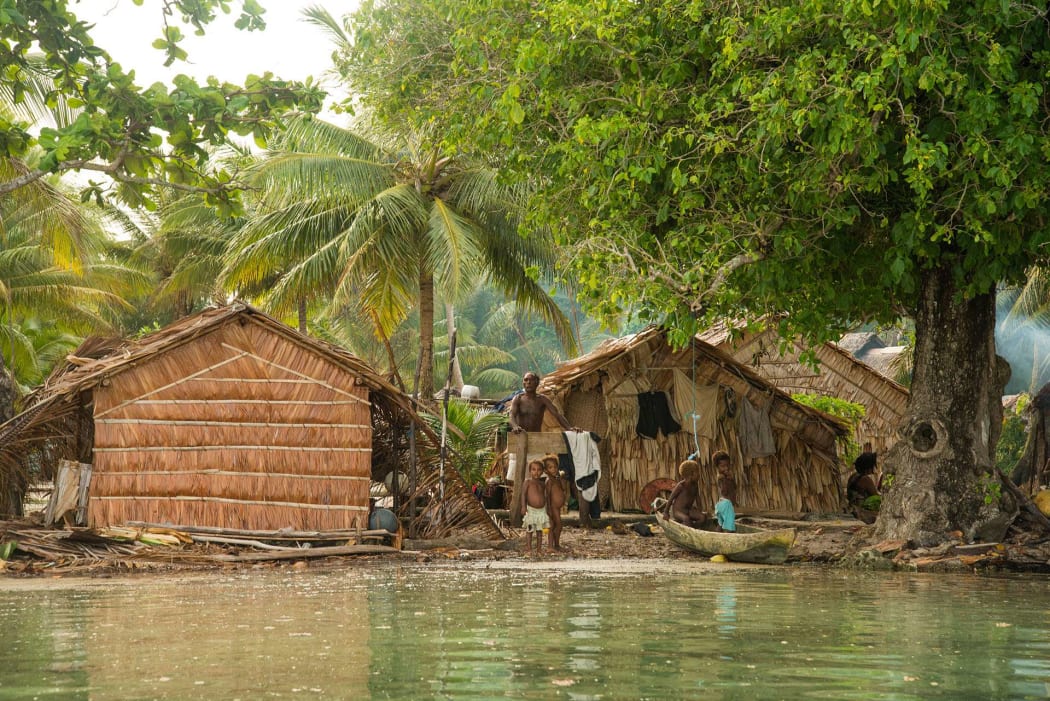
Ngadeli village in Temotu Province, Solomon Islands, is threatened by sea level rise. Photo: Britt Basel
Professor Clements, who hosted the conference, weighed in on the call to the next generation.
"My generation, I'm now in my seventies, I think we've really stuffed it up for my children and my grand children and my great grandchildren," he said.
"So I think an apology is called for."
"But there is something in the human spirit that generates hopefulness and optimism and resilience and I would hope that young people can discover that in forging communities capable of really responding to the major negative effects of climate change."

